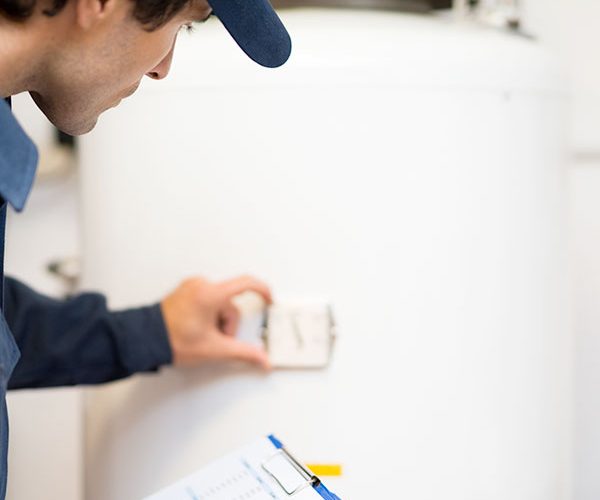Methods to Cope with the Major Hot Water Heater Urgencies
Methods to Cope with the Major Hot Water Heater Urgencies
Blog Article
What are your thoughts on Warning Signs You Need Water Heater Repairs?

A water heater is just one of the most crucial fundamental appliances that can be located in a home. With hot water heater, you don't need to experience the anxiety of heating water by hand whenever there is a need to wash, do the laundry, or the dishes. However, there is constantly a possibility that your hot water heater would act up similar to a lot of mechanical devices.
It is important to note any type of little breakdown and tackle it rapidly before points leave hand. The majority of times, your water heater begins to malfunction when there is a build-up of sediments as a result of constant usage. As a safety measure, routine flushing of your water heater is suggested to prevent sediment buildup as well as stop functional failure.
Typical hot water heater emergencies as well as just how to manage them
Inadequate hot water
It may be that the water heating unit can't support the hot water demand for your apartment. You can update your water heater to one with a larger capacity.
Fluctuating water temperature.
Your water heating unit might start generating water of various temperatures generally ice scalding or cold hot. There could be a need to change either the thermostat or the heating unit of your water heating unit.
Dripping water heater container.
A leaking container could be an indicator of rust. It can trigger damages to the floor, wall and electrical tools around it. You can even be at threat of having your home swamped. In this situation, you must shut off your water heater, permit it to cool off, and thoroughly seek the source of the trouble. Sometimes, all you need to do is to tighten up a couple of screws or pipe links in cases of small leaks. If this doesn't work and the leak lingers, you could need to use the services of a professional for a suitable substitute.
Blemished or stinky water
When this happens, you require to understand if the concern is from the container or the water resource. You are certain that it is your water heating unit that is damaged if there is no amusing smell when you run cold water. The smelly water can be triggered by corrosion or the buildup of microorganisms or sediments in the water heater tank. When you observe this, you can try flushing out your tank or replacing the anode if the problem continues. The feature of the anode is to clean microorganisms from your container. Given that the anode pole substitute needs a thorough expertise of your water heating system, you will certainly require the aid of a specialist.
Conclusion
Some homeowners overlook little caution as well as minor faults in their water heater unit. This just causes additional damage and also a possible complete breakdown of your home appliance. You should deal with your water heater mistakes as quickly as they come up to stay clear of even more expenses and also unneeded emergency difficulties.
With water heaters, you don't require to go with the stress of heating water manually every time there is a demand to take a bath, do the laundry, or the recipes. It might be that the water heater can not support the warm water need for your house. Your water heating system might start producing water of various temperature levels typically ice hot or cool warm. If there is no amusing smell when you run chilly water, after that you are particular that it is your water heating unit that is malfunctioning. The smelly water can be created by rust or the buildup of microorganisms or sediments in the water heater tank.
Common Water Heater Issues and What You Should Do
What Type of Water Heater Do You Have?
Before we begin it’s first important that you identify the type of water heater you have on your property. There are two main types of water heaters out there: conventional and high efficiency.
Both of these types of products typically use either gas or electricity to heat power. There are also solar water heaters that use a thermal collector on the roof or yard to heat the water.
While these models are not as common, they can cut heating costs in half. In this article, we will focus on conventional and high efficiency.
How Do My Electric and Gas Water Heater Work?
Though they look similar, electric and gas water heaters work very differently. It’s important to know their basic function because often problems can be specific to the heating source.
In the electric model, a thermostat on the side of the machine detects the temperature of the water in the tank. When the temperature needs to rise electricity flows to a heating element suspended in the water.
Gas models also use a thermostat device — typically with a mercury sensor at the tip and an additional sensor called a thermocouple. The thermocouple detects whether the pilot light is on and controls the flow of gas.
When the thermostat drops below the appropriate level gas is released which becomes ignited by the pilot light. The flame heats the bottom of the water tank which causes hot water to rise and cold water to drop.
This natural circulation continues until the water reaches the desired temperature. Then, the thermostat triggers the gas control valve to shut off the flow of gas.
What Are the Most Common Issues and How Do You Fix Them?
https://happyhiller.com/blog/common-water-heater-issues-and-what-you-should-do/

I stumbled upon that piece of writing on Warning Signs You Need Water Heater Repairs when doing research the search engines. Sharing is good. Helping others is fun. I love reading our article about Is Your Water Heater Leaking?.
Book 24/7 Report this page